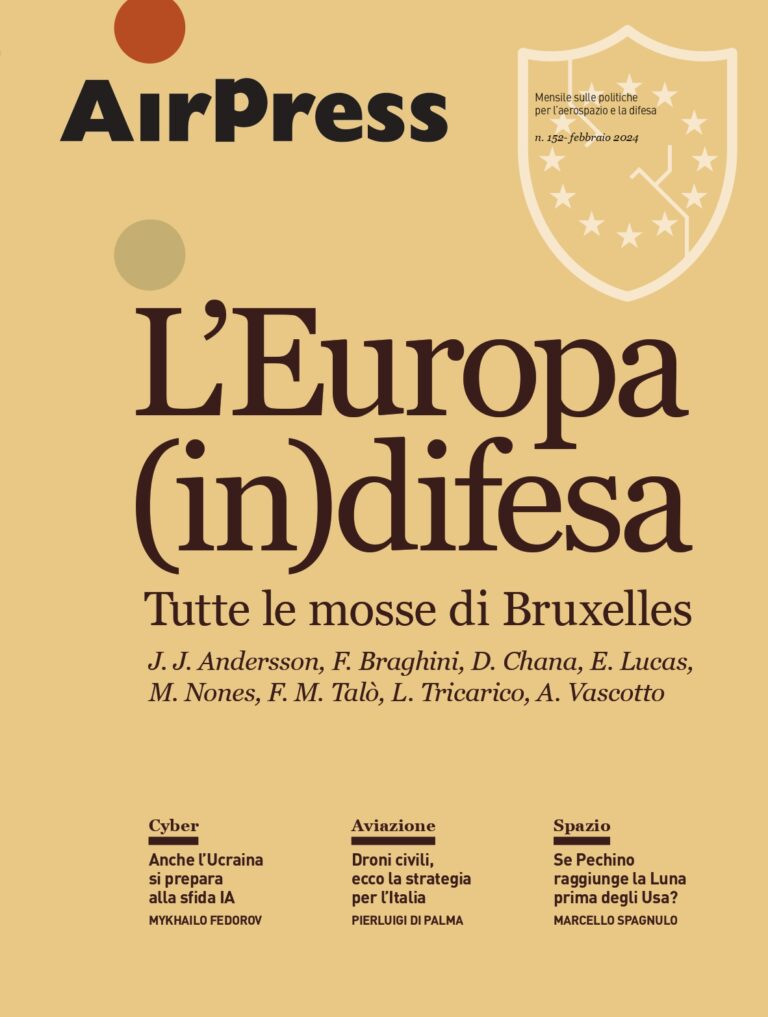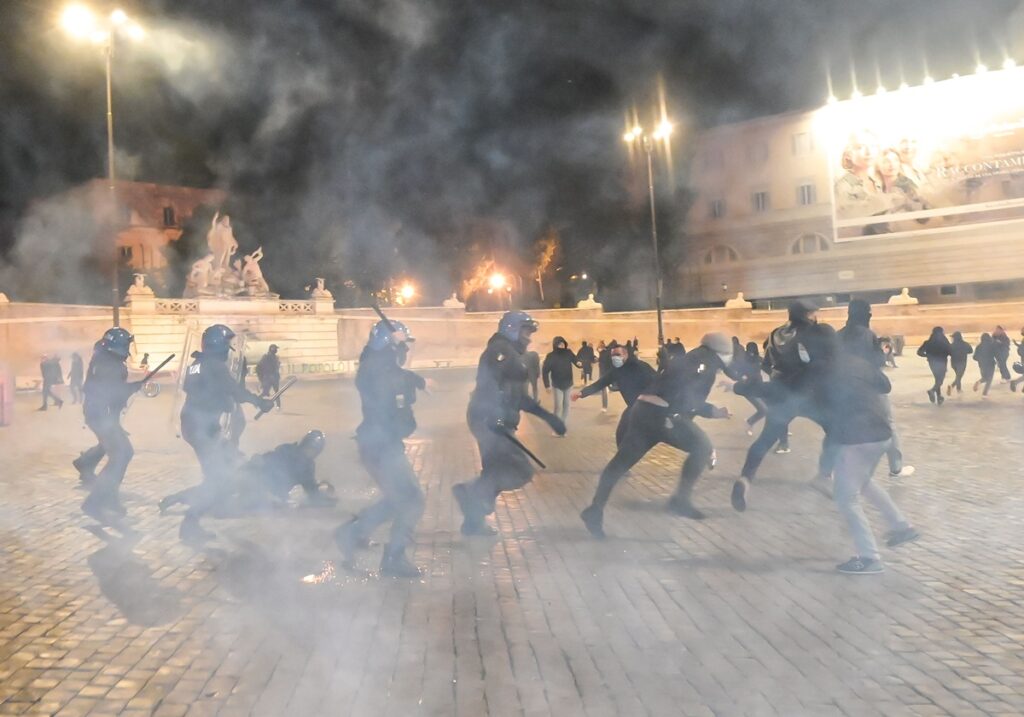As the country faces tightening restrictions, violent protests have erupted in Naples and Rome. The criminal underworld is involved, but events point to a more deep-seated kind of discontent – which can worsen as the economy tanks.
A sense of déjà vu is pervading Italy, as the infection rate spins out of control and the government announces tighter restrictions to limit the spread of the virus. But this time around, some protests have turned violent – even as prime minister Giuseppe Conte has ruled out another lockdown.
It began on Friday in Naples, where regional governor Vincenzo De Luca had publicly announced that he would impose a second lockdown – and had asked the central government to do the same at the national level. A nationwide curfew at 11 PM had just been imposed.
Hundreds of people quickly convened online and threw together a protest march. Most participants were on the young side, most were wearing face coverings. Then, conflict erupted between some protesters and the police, with some members of the criminal underworld mixing in with enraged citizens.
Aggressors staged a sort of urban guerrilla, setting fire to trash cans, hurling bottles and paper bombs. Two policemen were hurt, and a TV crew was attacked. Police forces employed tear gas, a few protestors were arrested, most dispersed.
The following day, Mr De Luca denounced the “few hundreds of scoundrels who soiled the city’s image” and promised to stay his ground. He then urged the government to deliver social and financial aid to the population, an “absolute priority, equalling sanitary measures.”
That same day, a dozen violent actors from the neo-fascist group Forza Nuova clashed with the police in Rome. Back in Naples, members of the far left dealt in public unrest.
On Sunday, Interior minister Luciana Lamorgese warned of a “difficult autumn” ahead. She denounced the organised criminality and political extremists derailing legitimate protests by engaging in “preordained attacks”.
Some newspapers were already sounding the alarm. In an interview to Repubblica Marco Minniti, former interior minister, called the Naples clashes a “subversive attack” and warned that mafia groups would ride the pandemic-related social rage to stir public disorder.
Il Mattino reported that the intelligence community had produced a report detailing how violent episodes could be spread across Italian cities. Reportedly, minor groups could converge and coordinate online to organise vast targeted rebellions.
In response to the unrests, President Sergio Mattarella will preside a Supreme Defence Council meeting on Tuesday. Meanwhile, the head of police Franco Gabrielli announced that he would send reinforcements to high-risk areas.
However, it would be a mistake to single out the criminal underworld and mafia organisations as the causes of this social unrest, writes Mario Caligiuri, president of the Italian Intelligence Society, on Formiche.net. According to him, the signals have been there all along, and were even laid out in previous intelligence services parliamentary reports.
In Naples, “criminals automatically promote and ride the discontent, as is their imprinting: However, the essence of the problem cannot be underestimated: the discontent exists regardless of the mafia. With the GDP falling by 10% 2020, these aspects cannot but become bigger.”
Mr Caligiuri pointed out that the discontent runs far deeper. In part, it’s the product of years of inadequacy of the public élites, who failed workers and endangered their livelihood in the long run. The pandemic measures simply acted as a catalyst, and governmental restrictions proved insufficient in quelling disorders.
Italy’s economic growth has been sluggish for more than a decade, and the government restrictions are heavily impacting the livelihood of millions of workers who were struggling well before the pandemic hit. The Italian government, despite the praise it received for acting effectively back in March, now seems unprepared for what comes next.
Suddenly, the delicate balance between public health and the economy has become tangibly explosive.







